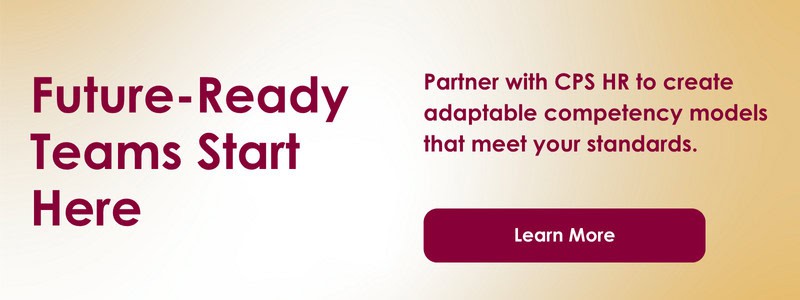Building Stronger Teams Through Competency Management
What is Competency Management?
Competency management focuses on identifying and developing key skills employees need to succeed in their roles. It’s a practical way for organizations to match individual abilities with job requirements and broader business goals. Competency management helps companies pinpoint exactly what knowledge, skills, and behaviors are needed for each position. It includes regular assessment of employee capabilities against these standards to spot areas for improvement. By tracking and nurturing these essential competencies, organizations can create targeted development plans that benefit both employees and the company as a whole.
Why Implement Competency Management?
1. Improves Operational Efficiency
Competency management allows organizations to match employees with tasks they’re qualified to handle, reducing mistakes and improving workflow. When staff members work on assignments aligned with their skill sets, they complete them faster and with better results. Competency management helps managers distribute work based on actual abilities rather than job titles or seniority alone. This approach cuts down on bottlenecks caused by skill mismatches and keeps projects moving forward smoothly. For larger organizations, competency management provides a consistent framework that works across departments and locations to maintain quality standards.
2. Strengthens Employee Retention and Morale
When employees work on tasks that fit their skills and abilities through competency management, they typically feel more confident and satisfied in their roles. Competency management shows staff that the organization recognizes their unique talents and wants to put them to good use. This recognition builds a stronger sense of belonging and purpose within the workplace culture. Employees who see that their skills are valued through competency management practices are more likely to stay with the company long-term. The clarity that comes from knowing what’s expected and having the right skills for the job reduces workplace stress and frustration.
3. Drives Higher Performance
Competency management creates an environment where employees understand what success looks like in their role. This clarity helps staff focus their efforts on developing the skills that matter most to their performance. Competency management provides a framework for regular feedback tied to specific skills, which helps employees see their progress clearly. When employees know which competencies will help them advance, they’re more motivated to improve and take on new challenges. Organizations with strong competency management see higher overall performance because expectations are clear and employees receive the support they need to excel.
4. Prepares the Workforce for Future Demands
Effective competency management identifies skill gaps before they become problematic, allowing for proactive upskilling initiatives. Organizations can prepare their workforce for upcoming changes by tracking industry trends and updating their competency requirements accordingly. Competency management helps employees develop adaptable skill sets that remain valuable even as technology and business practices evolve. This approach creates a culture of continuous learning where employees expect and embrace opportunities to grow their capabilities. Companies that excel at competency management can pivot more quickly when facing market disruptions because their workforce is prepared to learn and adapt.
5. Mitigates Future Risks
Competency management helps organizations stay ahead during this period of rapid skill evolution. By tracking competency gaps, companies can address potential shortfalls before they impact business results. Competency management provides a structured way to prepare for AI-driven changes to job roles rather than reacting after disruption occurs. Organizations with strong competency management programs can better weather talent shortages by developing critical skills internally. This approach reduces dependency on hard-to-find external talent and creates more stability in the workforce.

Benefits of Competency Management
1. Boosts Productivity
Competency management increases productivity by ensuring employees work on tasks that match their skills and knowledge. When staff members aren’t struggling with assignments beyond their abilities, they work more efficiently and make fewer errors. Competency management reduces the need for extensive oversight since employees already possess the skills needed for their responsibilities. Teams function more smoothly when competency management ensures all members have complementary skills that work well together. The time saved through proper skill matching can be redirected to higher-value activities that drive business results.
2. Improves Employee Morale
Employees feel more confident when competency management helps them play to their strengths rather than struggle with mismatched tasks. Competency management creates clearer expectations about performance, removing uncertainty that often leads to workplace stress. Staff members appreciate the personalized development opportunities that come from competency management’s focus on individual skill profiles. When employees see their competencies growing through structured management programs, they gain a stronger sense of achievement and progress. Organizations that implement competency management often see improved teamwork as employees better understand both their contributions and those of their colleagues.
3. Strengthens Retention and Hiring
Competency management provides clear criteria for hiring decisions, helping organizations select candidates who truly fit role requirements. During interviews, hiring managers can ask targeted questions about specific competencies rather than relying on general impressions. New hires who match the competency profile for their position tend to succeed more quickly and stay longer with the company. Competency management increases retention by ensuring employees have the skills they need to feel capable and engaged in their work. Organizations save significantly on recruiting and onboarding expenses when they retain employees through effective competency management.
4. Lowers Training and Onboarding Costs
With competency management, organizations can focus training resources precisely where they’re needed rather than using one-size-fits-all approaches. New employees with the right competency foundation require less basic training and can become productive more quickly. Competency management helps identify which existing employees could be upskilled for new roles, reducing external hiring costs. Organizations can develop more efficient training programs by understanding exactly which competencies need development across the workforce. The structured approach of competency management prevents wasteful spending on training that doesn’t address actual skill gaps.
5. Supports Employee Growth
Competency management gives employees visibility into which skills they need to develop for career advancement. Staff members can take more ownership of their professional development when competency expectations are clearly defined. Competency management helps identify high-potential employees who show aptitude in critical areas before they might otherwise be noticed. Organizations with strong competency management programs typically see higher internal promotion rates and better succession planning outcomes. Employees feel more loyalty to companies that invest in their growth through structured competency development.
6. Enables Smarter Talent Decisions
Competency management provides objective data about skill distributions across teams and departments, highlighting areas of strength and weakness. Managers can make more informed decisions about project assignments when they understand the competency profiles of their team members. Competency management creates a common language for discussing employee capabilities, making performance conversations more productive and less subjective. Organizations can plan learning programs that address the most important competency gaps rather than following training trends. Succession planning becomes more reliable when based on competency assessments rather than assumptions about employee potential.
7. Builds Organizational Agility
Competency management supports the creation of cross-functional teams by identifying transferable skills that work across different departments. Organizations can respond more quickly to changing priorities when they know which employees have the competencies needed for emerging needs. Competency management helps companies avoid the rigid thinking that comes from defining employees solely by their job titles or departments. Teams with complementary competency profiles collaborate more effectively and solve problems more creatively. Organizations with mature competency management systems can reorganize more smoothly when business conditions demand structural changes.

Strengthening Your Workforce With Competency Management
Competency management provides organizations with a structured approach to identify, develop, and optimize the skills their workforce needs today and tomorrow. From boosting productivity and employee morale to building organizational agility and preparing for future challenges, competency management delivers benefits that impact every aspect of organizational success. Effective competency management goes beyond simple skill tracking; it creates:
- A foundation for better hiring decisions
- Targeted development plans
- Strategic workforce planning
This approach to competency management ensures your frameworks remain relevant and defensible as your industry evolves. For organizations looking to thrive during periods of change, competency management offers a practical way to align individual capabilities with agency goals.
Ready to build a stronger workforce with a competency-based approach? Connect with a CPS HR professional to explore how tailored competency management strategies can help you align talent with business goals.
